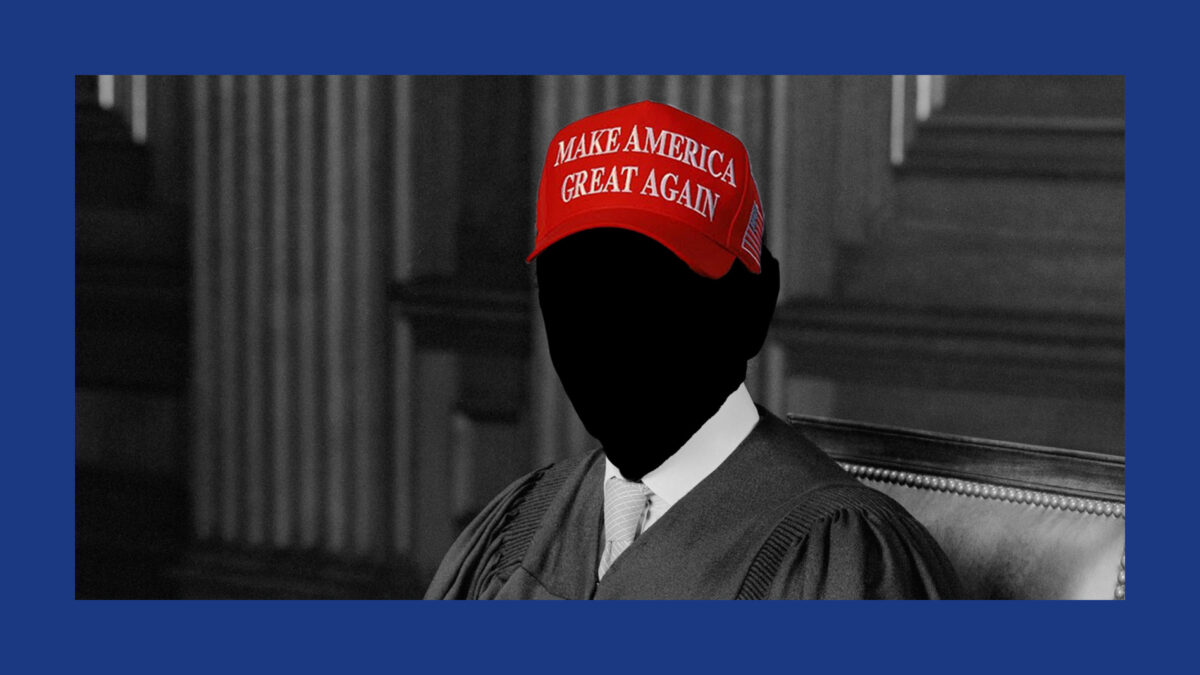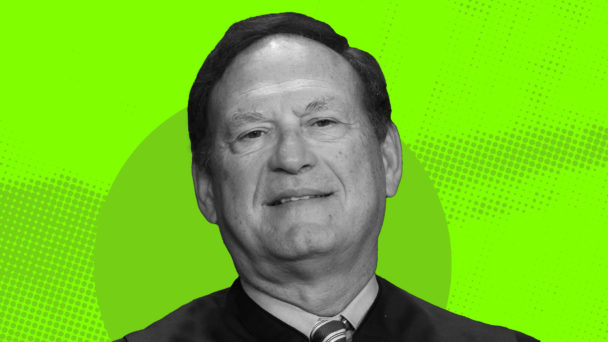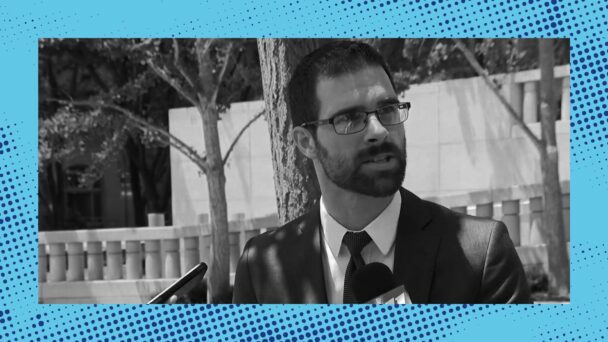Welcome to the FedSoc Twelve, a Balls & Strikes series about some of Donald Trump’s most unhinged judicial appointees. These judges, whether in their legal opinions or their off-the-clock conduct, have continued to push Trump’s agenda from the bench, forming something of a life-tenured Originalism Caucus within the federal judiciary. This summer, we’ll be checking in on these men and women now that they’ve gotten a chance to spread their wings during the Biden administration—and as they fight to be first in line for a Supreme promotion the next time Republicans control the White House.
The Résumé
Before taking the bench, Neomi Rao’s résumé was what you’d expect from a Federalist Society-backed Republican judicial nominee. For college, Yale; for law school, the University of Chicago, the birthplace of the modern “law and economics” movement, which encourages judges to think of “justice” in terms of supply and demand instead of right and wrong. Rao clerked for federal appeals court judge J. Harvie Wilkinson, a Reagan appointee, and then for known superyacht enjoyer Clarence Thomas. (Editor’s note: We began finalizing these profiles in May 2023 and do not know how many more Clarence Thomas-related ethics scandals have come to light since.)
After short stints in corporate law and the George W. Bush administration, Rao took a job at George Mason University’s law school, a newly ascendant and influential cog in the conservative legal machine. She served briefly in the Trump administration before he nominated her to the D.C. Circuit Court of Appeals in 2018. Although Republicans controlled the Senate, she had a tougher-than-expected confirmation: Democrats expressed concern over, for example, a college newspaper column she wrote asserting that “a good way to avoid a potential date rape is to stay reasonably sober.” But right-wing dark money groups poured money into the fight, and she won confirmation on a party-line vote.
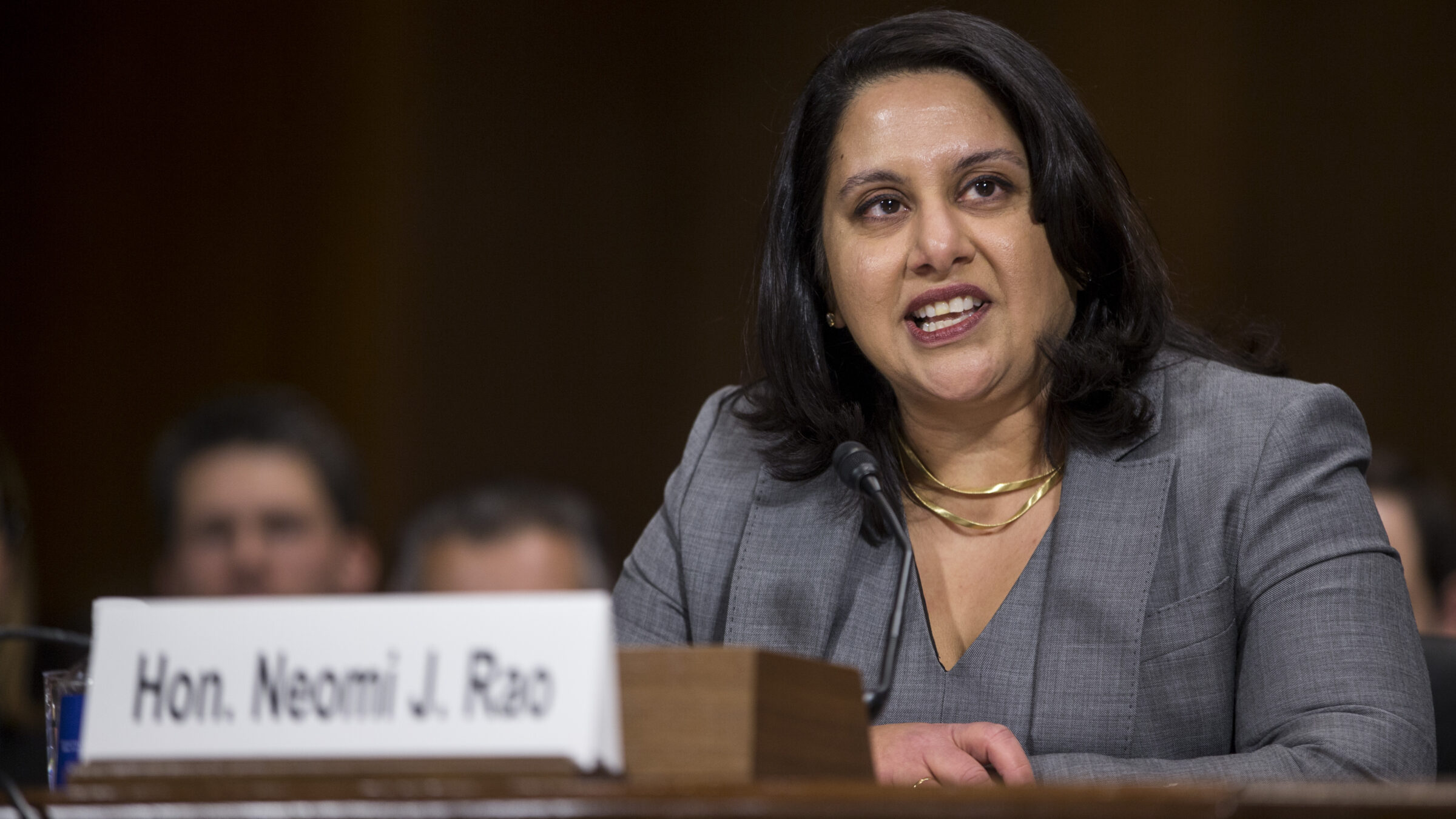
(Photo by Zach Gibson/Getty Images)
The Opinions
Because it often has to answer big questions about government power, the D.C. Circuit Court of Appeals is the most important federal appeals court. And when it comes to the disputes between the White House and Congress that increasingly come before it, Rao has shined. What sets her apart, even from other Trump judges, is her dogged, relentless defense of the man who appointed her to the bench, no matter how sizeable the legal obstacles he’s faced.
In 2019 and 2020, the D.C. Circuit heard a series of cases in which it ultimately allowed Congress to obtain information from Trump’s businesses, and from a grand jury that had been investigating him for potential crimes. Rao dissented three separate times. Twice, she argued that Congress could not investigate a president’s potentially criminal conduct outside of the impeachment process. Her opinions would have allowed any president to refuse to answer a congressional request about any matter if the president could argue that it could incriminate him. Those cases, of course, are precisely where Congress really should get that information—if it couldn’t, it would be even harder for Congress to decide when it needs to decide to impeach the president in the first place.
Rao has continued to cover for Trump even after he left office. You may recall that Trump’s business leased D.C.’s Old Post Office building from the federal government for a hotel. That hotel hemorrhaged money while he was in office, but he kept it afloat through a combination of loans from his other businesses and strangely favorable deals from his longtime friends at Deutsche Bank. In 2022, the D.C. Circuit allowed a group of members of Congress to subpoena the Government Services Administration for information about the terms of this lease.
Once again, Rao dissented. In a persnickety, too-clever-by-half opinion, she argued that members weren’t the right entity to sue for the records: Because they were individuals, and weren’t acting pursuant to a subpoena, they didn’t have standing. Never mind that a federal statute expressly authorized this group, all of whom were members of oversight committees, to ask for these records; in Rao’s view, the Constitution simply didn’t allow federal courts to get involved.
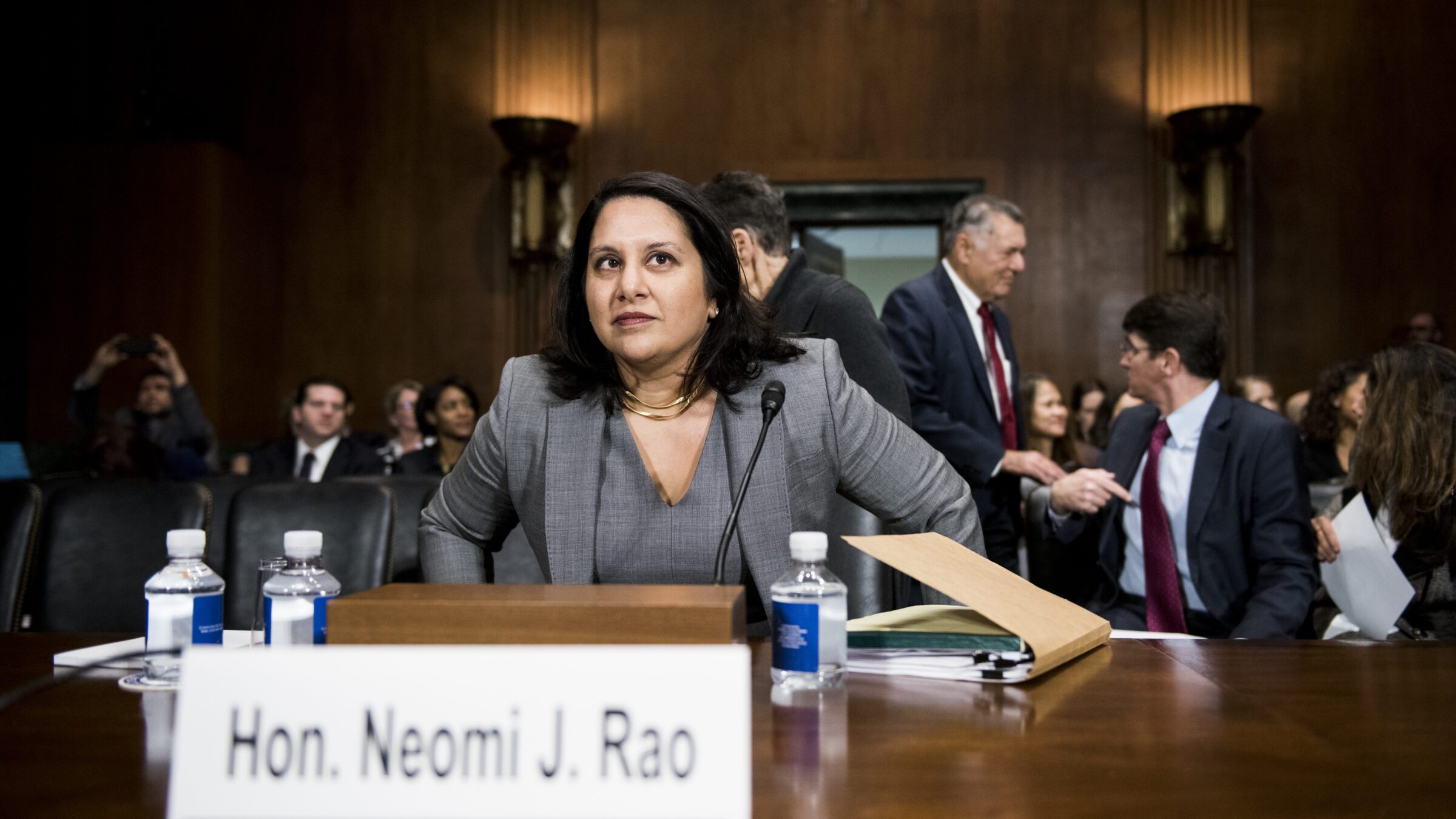
(Photo by Zach Gibson/Getty Images)
Protecting Trump isn’t Rao’s only interest. Laudably, she’s also deeply concerned with safeguarding the rights of criminal defendants—more specifically, former National Security Adviser and unregistered lobbyist for outgoing Turkish President Erdogan Michael Flynn. You may recall an odd episode in 2020 when Trump’s Department of Justice tried to dismiss a criminal indictment against Flynn for lying to the FBI. Normally, prosecutors have broad discretion to bring or not bring charges, but given the nature of the case, the federal judge overseeing the matter asked for a little more explanation for why the DOJ had changed its mind. This resulted in a bizarre legal battle between Trump’s DOJ and the federal judiciary that ended when Trump, after losing the 2020 election, pardoned Flynn on his way out.
Rao, however, was appalled by the government’s treatment of a hero like Flynn, complaining in a dissent when the case bounced up to the D.C. Circuit that the FBI did not tell Flynn what they knew about him before interviewing him, or warn him that lying to the FBI is a crime, or advise him to bring a lawyer to the interview who could tell him to shut up. According to Rao, the FBI’s conduct flew in the face of “ordinary FBI practice” when it comes to investigating White House officials. That is probably news to many hundreds of other FBI interviewees who are not White House officials. But it’s always heartening when a federal judge criticizes the absurdities of our criminal punishment system.
Unfortunately, Rao’s enthusiasm for protecting people in the criminal punishment system ended there. She played a key role in abetting Trump’s killing spree in 2019 and 2020, when DOJ suddenly announced that it would resume executing federal prisoners for the first time since 2003. Federal execution protocols provide that the government must execute a prisoner “in the manner of the law of the State” where the sentence was imposed. In 2020, advocates challenged several executions, arguing that the government had to follow every law, rule, and policy that a state imposes. Rao split the difference, holding that the federal government needed to follow any state statutes or rules pertaining to executions, but not any guidance or policy that didn’t have the force of law. Trump’s execution spree wouldn’t have been so prolific without Rao’s help: Hers was the controlling opinion of a 2-1 split.
And she kept doing it, even when it meant ignoring her own opinions. In January 2021, Trump rushed to execute three more people on his way out the door. In one case, the federal government had given a Missouri prisoner, Lisa Montgomery, less than 60 days’ notice of her execution date, even though under the state’s rules, Montgomery was supposed to get 90 days. The D.C. Circuit attempted to halt the execution, extensively citing Rao’s opinion from the year before and concluding that the Bureau of Prisons was not following state law. But Rao dissented, voting to allow the execution to proceed. And when the Trump administration appealed the D.C. Circuit’s decision, she got her wish: On the morning of January 13, 2021, a week after Trump’s failed coup attempt and a week before Biden’s inauguration, the Supreme Court allowed the Trump administration to execute Montgomery.
The Weird Shit
Since taking the bench, Rao has avoided making culture-war headlines and apologized for her controversial pre-judicial writings; evidently, she thinks that keeping her head down and cranking out pro-Trump, pro-capital punishment judicial opinions is her path to the Supreme Court.
But there is this:
Meanwhile, true story: Amy Berman Jackson of Stone fame and Neomi Rao of Flynn fame are joining Merrick Garland later this month at a Shakespeare Theater Company mock trial for “A Midsummer’s Night Dream.”
Litigators are Abbe Lowell and Kathy Ruemmler
— Eric Tucker (@etuckerAP) July 11, 2020
For the uninitiated, the Shakespeare Theatre Company is a D.C.-based theater that regularly hosts Shakespeare-adjacent “mock trials” for their most depraved patrons. At these events, federal judges—including Supreme Court justices—sit on the panels “adjudicating” the mock trials, which are opportunities for BigLaw partners to do half-hour legally-themed standup routines about Shakespeare’s work, with lots of knowing winks and nods to the rhythms of oral argument.
Fortunately, C-SPAN records many of these, so you can watch them for yourself. But be aware: This video is exactly what I said it is. Prolonged exposure may be harmful to your mental health.
Unfortunately, Rao’s starring turn doesn’t appear on C-SPAN’s website. But attendees are always a who’s-who of the D.C. legal community, there to encourage America’s nerdiest lawyers to drop big money to support the theater. What this means is that Rao isn’t uniquely dorky—instead, she’s positioning herself as just as dorky as the Supreme Court justices who regularly preside over these mock trials. She knows exactly where she wants to go, and she’s setting herself up to get there the next time she has a chance.
Next up: James Ho.
